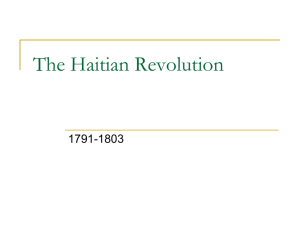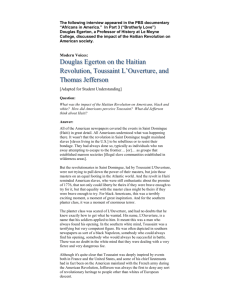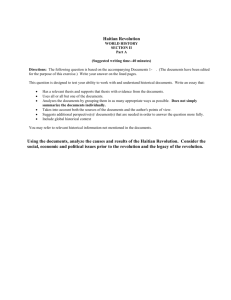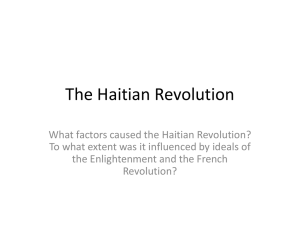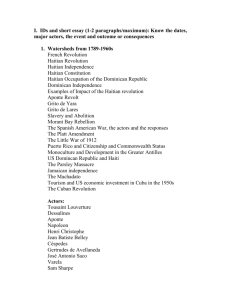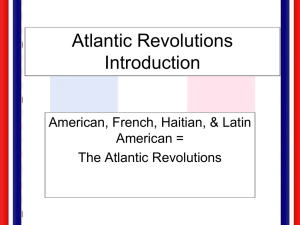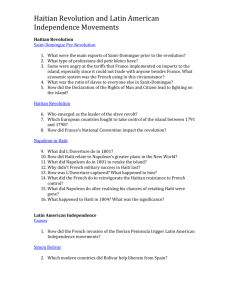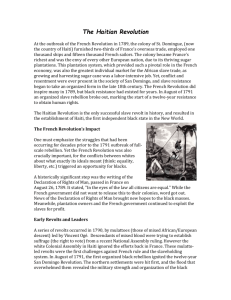Toussaint Louverture and the Haitian Revolution
advertisement
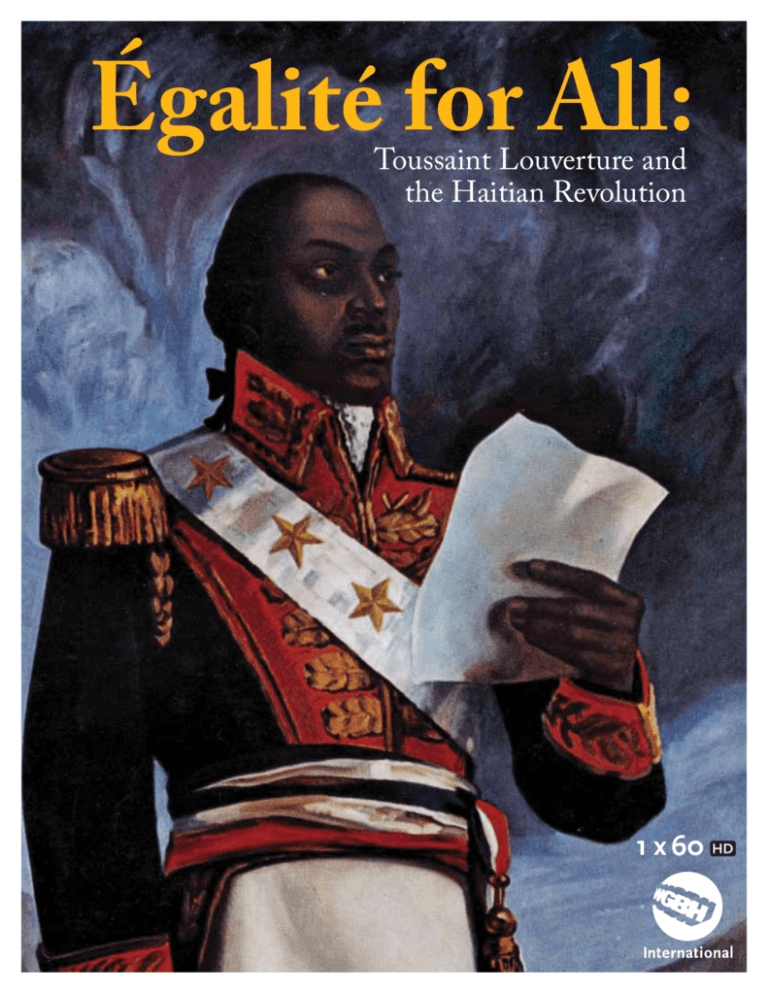
Égalité for All: Toussaint Louverture and the Haitian Revolution 1 x 60 Égalité for All: Toussaint Louverture and the Haitian Revolution 1 x 60 C O N TA C T Tom Koch, Director WGBH International One Guest Street Boston, Ma 02135 USA TE L FA X 617-300-3893 617-779-7900 tom_koch@wgbh.org wgbhinternational.org It was the only successful slave insurrection in history. It grasped the full meaning of French revolutionary ideas—liberté, egalité, fraternité—and used them to create the world’s first Black republic. It changed the trajectory of colonial economics and led to America’s acquisition of the Louisiana territory from France. “It” was the Haitian Revolution, a movement that’s been called the true birth moment of universal human rights. Vaguely remembered today, the Haitian Revolution was a hurricane at the turn of the nineteenth century—traumatizing Southern planters and inspiring slaves and abolitionists, worldwide. The man at the forefront of Haiti’s epochal uprising was Toussaint Louverture. He was known throughout the world in his day and deserves a place among history’s most celebrated figures, today. Born into slavery, Toussaint had been freed by his master before the revolt began. He owned property and was financially secure. He risked it all, however, to join then lead an army of slaves that would fight, in turn, the French, the British, and the Spanish empires for twelve years. He was often compared to George Washington. But his is military feats alarmed Thomas Jefferson and ultimately provoked a full-scale attack from Napoleon Bonaparte. France’s final offensive would cost Toussaint his life. But France lost, nonetheless, and the richest colony in the Americas became an independent black republic. The story of Haiti’s revolution is a story of extraordinary pathos. Half a million slaves dared hope for an unprecedented end to slavery and thousands died in the process. But the revolution’s history is also a story of forgotten people and milestones. Haitian slaves did not just fight with weapons. In 1794 a multi-racial delegation from Haiti traveled to Paris to address the national assembly. They spoke powerfully about slavery’s moral and physical violence. They argued that their struggle was part of France’s domestic revolution against despotism. And they won the day. The elocution of Haitian Blacks led to a sudden decree that not only freed the empire’s entire slave population, it made them French citizens, too. Égalité for All: Toussaint Louverture and the Haitian Revolution explores this history through music, voodoo ritual, powerful reenactments and insightful writers and historians. 0801092 CREDITS Exectuive Producer: Margaret Koval Producer: Patricia Aste Director, Writer: Noland Walker A production of Koval Films,llC Photo Credit: Koval Films LLC.

